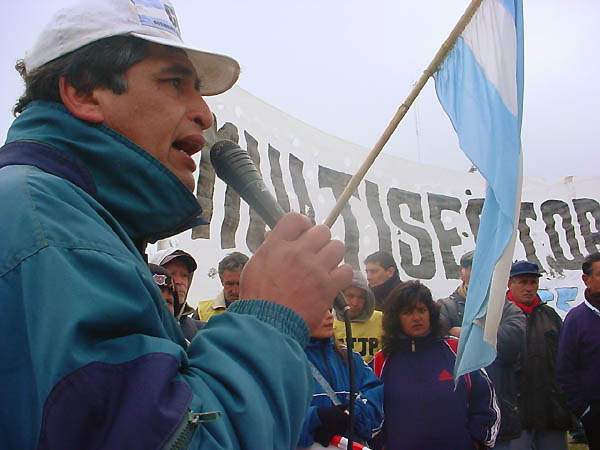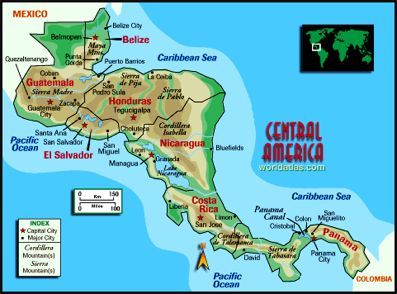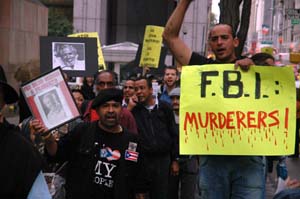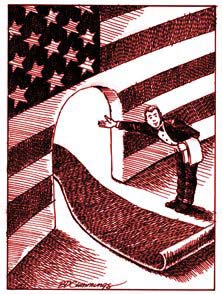 Although this article is from 2002, Criticas magazine published a very handy list of 100 Latino fiction books that “you should stock.”
Although this article is from 2002, Criticas magazine published a very handy list of 100 Latino fiction books that “you should stock.”books fiction latin america
The English-language forum for all things Latin American, covering business, politics, and culture.
 Although this article is from 2002, Criticas magazine published a very handy list of 100 Latino fiction books that “you should stock.”
Although this article is from 2002, Criticas magazine published a very handy list of 100 Latino fiction books that “you should stock.” A study released on Wednesday by the National Academy of Sciences says that the growth in Hispanics in the
A study released on Wednesday by the National Academy of Sciences says that the growth in Hispanics in the  (Submitted by David) Prompted by the precedent-breaking elections of Michelle Bachelet in Chile and Portia Simpson Miller in Jamaica, in addition to the probable Lourdes Flores victory in Peru, The Miami Herald profiles women's rise to the top in Latin America. (Miami Herald)
(Submitted by David) Prompted by the precedent-breaking elections of Michelle Bachelet in Chile and Portia Simpson Miller in Jamaica, in addition to the probable Lourdes Flores victory in Peru, The Miami Herald profiles women's rise to the top in Latin America. (Miami Herald) Marcela Sanchez's weekly column, today covering the politics and foreign relations proposals of Mexican presidential candidate Andres Manuel Lopez Obrador. In English and Spanish.
Marcela Sanchez's weekly column, today covering the politics and foreign relations proposals of Mexican presidential candidate Andres Manuel Lopez Obrador. In English and Spanish. The Washington Post profiles prostitutes in Rio de Janeiro that are actively campaigning to spread information about sexually transmitted diseases and to distribute condoms and information about AIDS. USAID has refused to declare Brazil eligible for grants to combat AIDS because the US government disapproves of such activities, and because the Brazilian government refused to 'formally state that prostitution is dehumanizing and degrading'. (WAPO)
The Washington Post profiles prostitutes in Rio de Janeiro that are actively campaigning to spread information about sexually transmitted diseases and to distribute condoms and information about AIDS. USAID has refused to declare Brazil eligible for grants to combat AIDS because the US government disapproves of such activities, and because the Brazilian government refused to 'formally state that prostitution is dehumanizing and degrading'. (WAPO) Starting today, it is illegal to smoke in enclosed public spaces in
Starting today, it is illegal to smoke in enclosed public spaces in 
 In light of increased hiring of Hispanics by the mainstream media over the past year-and-a-half, Hispanics continue to be seen as a “generic”, homogenous group by the media. Hence, the author feels that the media needs to ask “what does it mean to be Hispanic,” a similar concern expressed in a blog entry on Tuesday by Taylor Kirk.
In light of increased hiring of Hispanics by the mainstream media over the past year-and-a-half, Hispanics continue to be seen as a “generic”, homogenous group by the media. Hence, the author feels that the media needs to ask “what does it mean to be Hispanic,” a similar concern expressed in a blog entry on Tuesday by Taylor Kirk. (Image shows the racial combinations selected by Hispanics in the
 "Judging by the treaty's impact on working people throughout the Americas, and by its rocky reception thus far, CAFTA's proponents can expect more backlash to come," says The Nation. (The Nation)
"Judging by the treaty's impact on working people throughout the Americas, and by its rocky reception thus far, CAFTA's proponents can expect more backlash to come," says The Nation. (The Nation) The latest issue of
The latest issue of For those in the New York City area, Our Brand is Crisis will air starting tonight and for the next two weeks at Manhattan's Film Forum.
 Charges have been brought against the Ford Motor Company in
Charges have been brought against the Ford Motor Company in  This book isn't new, but blogger Sheila Variations has a nice excerpt and discussion on it. (Sheila Variations)
This book isn't new, but blogger Sheila Variations has a nice excerpt and discussion on it. (Sheila Variations) After a US-owned Mexico City hotel ejected 16 Cuban delegates from its property city officials closed it down until managers would pay a $15,000 fine and correct the violations cited, which included faulty building permits. The move was ostensibly in retaliation for the hotel's violation of Mexico's sovreignty, but DF officials said that other hotels had been shut down for the same building code violations. (Yahoo)
After a US-owned Mexico City hotel ejected 16 Cuban delegates from its property city officials closed it down until managers would pay a $15,000 fine and correct the violations cited, which included faulty building permits. The move was ostensibly in retaliation for the hotel's violation of Mexico's sovreignty, but DF officials said that other hotels had been shut down for the same building code violations. (Yahoo) Mark Fonseca Rendeiro was nice enough to have me on his podcast this weekend to discuss the election in Costa Rica. I was very nervous, as this was my first, and I must have said the word 'actually' 80 + times! How embarrassing. Mark was very accomodating though, and put up with me as an amateur. Listen to the segment here and make sure to go to his homepage to check out his other fantastic productions. (BicycleMark)
Mark Fonseca Rendeiro was nice enough to have me on his podcast this weekend to discuss the election in Costa Rica. I was very nervous, as this was my first, and I must have said the word 'actually' 80 + times! How embarrassing. Mark was very accomodating though, and put up with me as an amateur. Listen to the segment here and make sure to go to his homepage to check out his other fantastic productions. (BicycleMark) Or a Latino? Which is a race, which is a cultural distinction? Where do Brazilians fit into all of this??? What if your parents are from Europe but you were born in Argentina and your only language is Spanish??? What if your parents are from Mexico but you were born in the US and your only language is English??? What if we were allowed to check up to five different boxes for race/ethnicity on the census? (Southern New Hampshire University)
Or a Latino? Which is a race, which is a cultural distinction? Where do Brazilians fit into all of this??? What if your parents are from Europe but you were born in Argentina and your only language is Spanish??? What if your parents are from Mexico but you were born in the US and your only language is English??? What if we were allowed to check up to five different boxes for race/ethnicity on the census? (Southern New Hampshire University) Miguel Buitrago's blog discusses the reliability of surveys on the Bolivian population's trust in the judicial branch, and the effect the lack of strong institutions may have in building the country's democracy. (MABB)
Miguel Buitrago's blog discusses the reliability of surveys on the Bolivian population's trust in the judicial branch, and the effect the lack of strong institutions may have in building the country's democracy. (MABB) Connecticut has become the new public relations battleground between Hugo Chavez and President Bush, as Venezuela expanded its controversial program of providing fuel subsidies to the US poor in the northeastern state. (Brocktown News) Blogger Connecticut Conservative is not very happy with this arrangement.
Connecticut has become the new public relations battleground between Hugo Chavez and President Bush, as Venezuela expanded its controversial program of providing fuel subsidies to the US poor in the northeastern state. (Brocktown News) Blogger Connecticut Conservative is not very happy with this arrangement. KnowProse.com discusses how patent law in the Caribbean is affected by CARICOM. (KnowProse)
KnowProse.com discusses how patent law in the Caribbean is affected by CARICOM. (KnowProse) A reality show in Guatemala covers the lives of former gang members as they struggle to rehabilitate their lives and get along with street rivals. WAPO in English and Spanish.
A reality show in Guatemala covers the lives of former gang members as they struggle to rehabilitate their lives and get along with street rivals. WAPO in English and Spanish. On the heels of Bebel Gilberto’s hit album Tanto Tempo, more and more musicians are dabbling with electro-Latin or Latintronica, a musical genre mixing electronic music with traditional Latin music. For groups such as Nortec Collective, Bossacucanova, and Plastilina Mosh, Latintronica represents “the exuberance - the magical realism and the reckless appetite for life that most Latin music has - and (the) melancholy feel that defines all Latin music”.
On the heels of Bebel Gilberto’s hit album Tanto Tempo, more and more musicians are dabbling with electro-Latin or Latintronica, a musical genre mixing electronic music with traditional Latin music. For groups such as Nortec Collective, Bossacucanova, and Plastilina Mosh, Latintronica represents “the exuberance - the magical realism and the reckless appetite for life that most Latin music has - and (the) melancholy feel that defines all Latin music”.  Black Latinos seem to be caught within two ethnicities and are not fully accepted by ether blacks or Latinos, notes an article in Monday’s
Black Latinos seem to be caught within two ethnicities and are not fully accepted by ether blacks or Latinos, notes an article in Monday’s Meanwhile, a separate article from NorthJersey.com highlights the growth of Muslim-worshipping Hispanics in the
 Colombian and
Colombian and

 Over 1000 people marched in
Over 1000 people marched in
 Is
Is 
